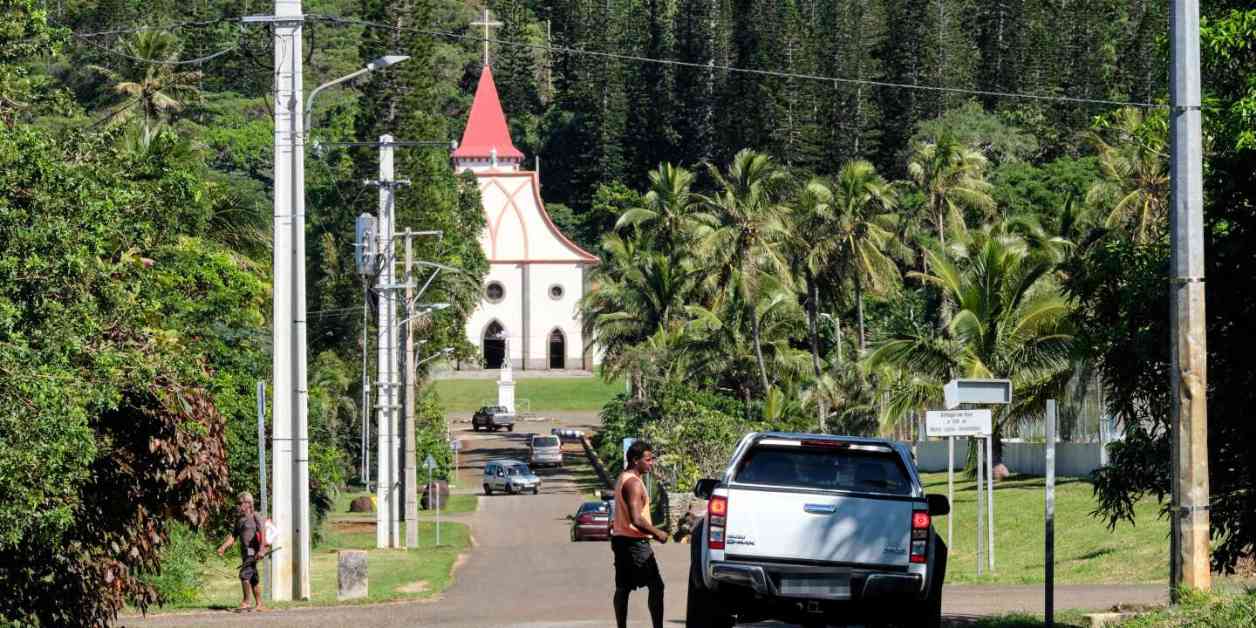**Attacks on Churches in New Caledonia: A Closer Look at the Recent Incidents**
The recent spate of attacks on churches in New Caledonia has left many in the community reeling, as six churches have been damaged or destroyed by deliberate fires since July 19. Despite the significant impact of these incidents, the main independence movement in the region, the Union calédonienne, has not issued a strong response, raising questions about their stance on these acts of violence.
**Local Response and Investigations**
Law enforcement authorities have increased patrols around places of worship in an effort to prevent further attacks, but their efforts have not been entirely successful. On September 9, parishioners were once again left devastated as they reported yet another church fire at Balade in the commune of Pouébo in the northeast of the territory. The significance of this particular church, where the evangelization of the Grande Terre began in 1843, adds to the emotional weight of these incidents.
Archbishop Michel Calvet of Nouméa, who has been a part of the community since the late 1960s, expressed his bewilderment at the attacks. Despite the complex history between colonization and religion in New Caledonia, he emphasized the positive role that the Church has played in supporting the indigenous Kanak people, particularly in education. However, lingering issues related to land ownership continue to fuel tensions in the region.
**Understanding the Motivations**
As investigations into the church attacks continue, various factors are being considered as possible motivations. Some social media discussions have linked religion with colonization, while others point to instances of alcohol-fueled recklessness. The local prosecutor, Yves Dupas, even raised the possibility of a satanic ritual being behind the destruction of the Saint-Louis church in Mont-Dore.
In the wake of these incidents, President Louis Mapou of the New Caledonian collegial government condemned the attacks as irresponsible acts that undermine the principles of fraternity and sharing that are integral to the local society. He emphasized that no level of discontent or anger justifies such destructive behavior.
**Community Reactions and Moving Forward**
The church attacks have sparked conversations within the community about the underlying issues that may have contributed to these violent acts. While tensions between different groups in New Caledonia are not new, the targeting of churches has added a layer of complexity to the ongoing discussions about reconciliation and unity.
As Archbishop Calvet reflects on the challenges facing the community, he acknowledges past mistakes and calls for a spirit of forgiveness and understanding. He points to a significant moment in 1993 when he publicly acknowledged the wrongs done to the Melanesian people during the 150th anniversary celebration at Balade, highlighting the importance of reconciliation in moving forward.
**Calls for Unity and Healing**
In the face of these troubling events, there is a growing consensus among community leaders, religious figures, and government officials about the need for unity and healing. The attacks on churches have served as a stark reminder of the fragility of peace in New Caledonia and the importance of addressing underlying grievances through dialogue and understanding.
Moving forward, it will be crucial for all stakeholders to come together to address the root causes of the church attacks and work towards building a more inclusive and harmonious society. By fostering a culture of respect, empathy, and cooperation, the people of New Caledonia can overcome these challenges and build a brighter future for all.

